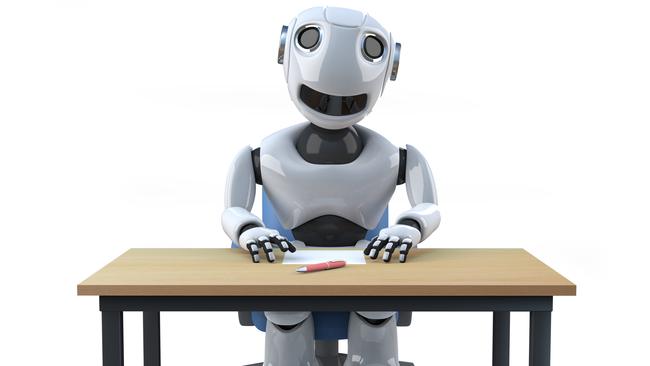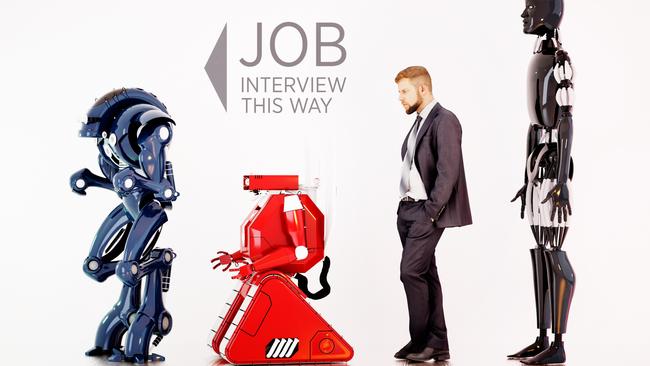In the age of AI it’s best to show you’re human, says LinkedIn chief economist Karin Kimbrough
An overwhelming majority of employers say the best way to stay relevant is with manners and the ability to solve problems, a LinkedIn report shows.

If you believe AI skills are the be all and end all for employment in 2023 then think again.
About 94 per cent of business leaders surveyed for LinkedIn’s latest Global Future of Work report say soft skills – communication, interpersonal skills, problem solving, work ethic and time management – have never been more important.
In fact, 74 per cent of respondents rated soft skills even more important to their organisation than AI skills, according to the report, titled State of AI @ Work, and released on Wednesday.
LinkedIn chief economist Karin Kimbrough told The Australian that while upskilling alongside AI was crucial, workers also needed to “hone people skills such as creativity and problem solving to collaborate effectively with these tools”.

“While AI is driving change in the workforce, at the same time, people skills are becoming increasingly important,” Ms Kimbrough said.
“Our data shows that seven in 10 executives in Australia agree that people skills are more valuable to their org than AI skills.”
Workers seem to agree with that sentiment. About 64 per cent of Australians believed problem solving and the ability to be creative was more important than ever before, according to the report.
There were some variations of opinion across different generations. For instance, millennials backed soft skills more so than Generation X with a degree of difference of 7 per cent – at 71 per cent compared with 64 per cent.
Of all generations, Gen Z, of which only about half of its cohort is old enough to be working full-time, was the most welcoming of AI skills. Just under two thirds – or 62 per cent – of Gen Z was confident that AI skills would lead to more career opportunities, compared with just 45 per cent of Australian workers overall.
Ms Kimbrough said LinkedIn has observed the number of profiles on the platform with keywords such as AI growing.
“As generative AI tools like ChatGPT become available, we are seeing members develop their AI literacy and learn to incorporate these technologies into their daily jobs,” she said.
“Only this year, we’ve seen a 75 per cent monthly increase in terms like ChatGPT, Prompt Engineering or Generative AI on members’ profiles, globally. In June, members added these keywords to their profiles 15 times more frequently than in January.”
According to the report, just 18 per cent of Australian workers are using AI in their roles. Just under one third – or 32 per cent – have seen the role of AI increase in their workplace.

More than half of executives say the use of AI could increase productivity and a slightly lower number planned to actively use AI to increase their organisation’s productivity.
When it came to finding workers with AI skills, just 7 per cent of business leaders were looking to hire staff. More than one third of executives planned to upskill in AI and 30 per cent plan to either re-skill or upskill their staff with knowledge on AI or hire those who already have the skills, according to the report.
“It’s worth mentioning that in 2022, the growth in AI talent hiring has outpaced the growth in overall hiring in Australia by 12 per cent. This seems to be an upward trend globally as well – the share of global English-language job postings mentioning GPT or ChatGPT increased 21 times since November 2022,” Ms Kimbrough said.
“In this world of work, which is changing at such a rapid pace, we believe companies should focus on a skill-first hiring mindset.
“This means looking at whether or not a professional has the right set of skills, rather than the education or experience, to do the job.”
The report found that about 28 per cent of professional workers in Australia are interested in learning how to use the AI at work.







To join the conversation, please log in. Don't have an account? Register
Join the conversation, you are commenting as Logout